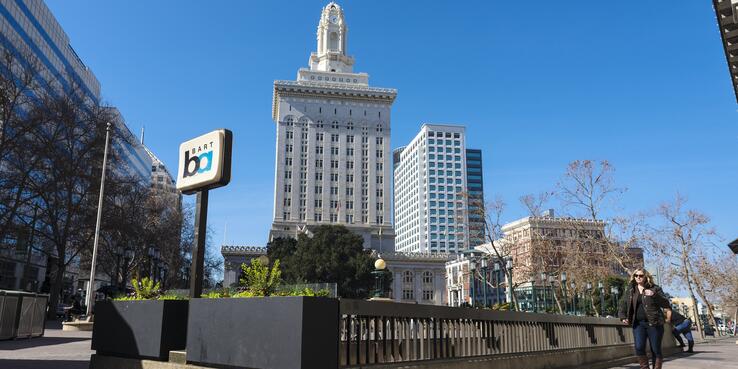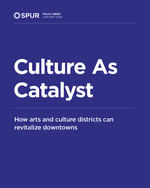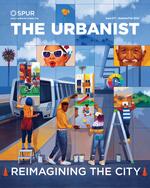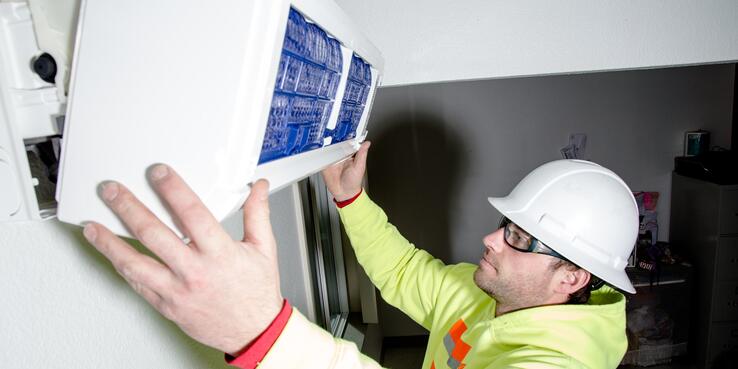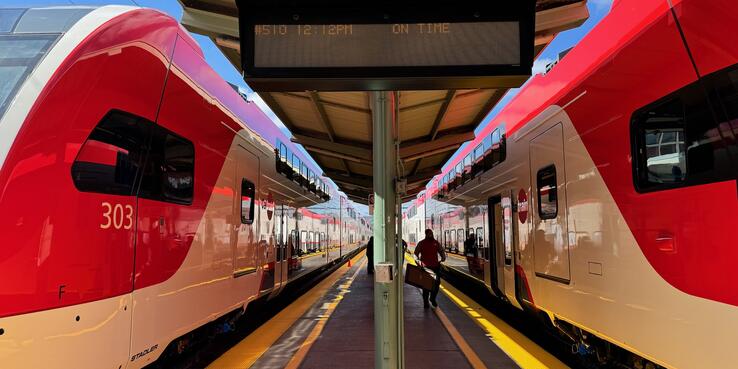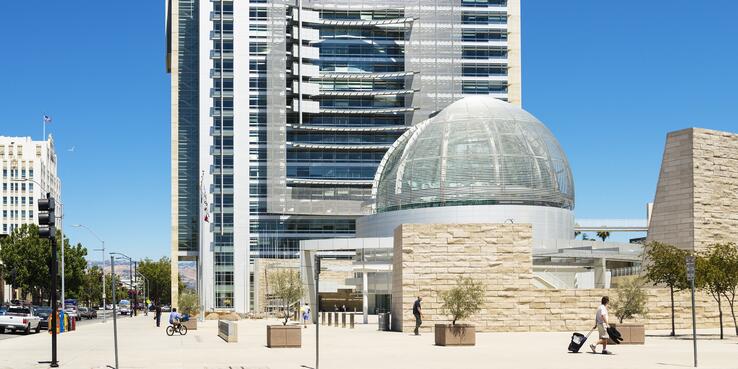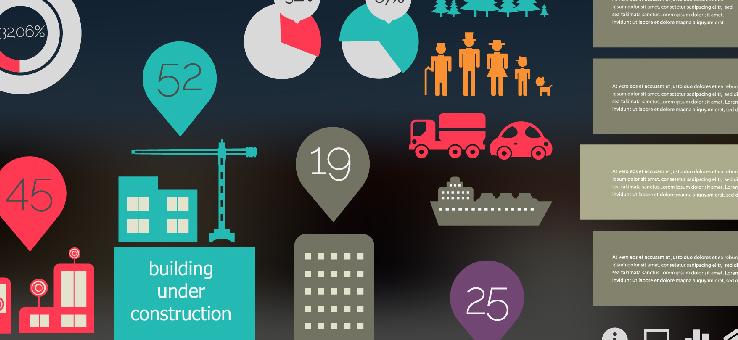
What It Will Take to Close Oakland’s Structural Deficit, Part 2: Budget-Setting, Spending, and Revenues
News / Oakland city leaders must close a $129 million shortfall in this year’s budget and eliminate an additional $280 million deficit projected over the next two years. Now, policymakers, administrators, employee unions, and Oaklanders must work together to reduce spending and grow revenues. To support the process, SPUR provides a primer on the city’s budget-setting process, where its revenue comes from, and how that money is spent.
Remembering Wells Whitney
News / Former SPUR board member Wells Whitney died on February 4. A research scientist with degrees from Harvard and MIT, he and a small group of other “techies” formed a SPUR Telecom Technology Task Force in 1999 to advocate for fairness and inclusion in digital infrastructure. Their work helped San Francisco bridge the digital divide by requiring cell phone providers to offer affordable access across the city.
Remembering George Miller
News / George A. Miller, SPUR board member from 2015 to 2022, member of the Finance Committee, and past member of the Ballot Analysis Committee, died on February 4, two days before his 89th birthday, as he was preparing to rejoin the SPUR Board of Directors for another term. George was one of a kind — a deep thinker, an urbanist, an environmentalist, a brilliant investment strategist, and an irreverent raconteur who was smart enough not to take himself too seriously. He will be greatly missed.
Message From SPUR's Interim CEO
News / On February 3, David Friedman joined the SPUR staff as interim president and CEO. A leader in the engineering field, David is deeply committed to SPUR’s mission and the transformative power of public policy. He shares a look at SPUR’s policy agenda for 2025, including high-impact initiatives in housing, planning transportation, sustainability and resilience, and governance.
How Arts and Cultural Strategies Can Revitalize Downtowns: Q&A with Erika McLitus and Sujata Srivastava
News / Bay Area downtowns have faced significant social and economic challenges since the COVID-19 pandemic. In a new brief, SPUR’s Erika McLitus and Sujata Srivastava explore how cultural districts can play a transformative role in breathing new life into these urban landscapes. We asked them about the potential of cultural districts to both enhance the vibrancy of downtown areas and promote equity and belonging, ultimately paving the way for a more resilient urban future.
SPUR CEO Alicia John-Baptiste to Join SF Mayor’s Administration
News / SPUR President and CEO Alicia John-Baptiste will be leaving SPUR to take on a newly created policy chief role with the San Francisco Mayor’s Office. On February 3, she will join Mayor Daniel Lurie’s administration as Chief of Infrastructure, Climate & Mobility. The position reports directly to the mayor and is part of a restructuring intended to help break down silos and reduce complexity in city government.
What It Will Take to Close Oakland’s Structural Deficit, Part 1: How We Got Here
News / Oakland is at a pivotal moment as city leaders work to address a significant budget shortfall of $129 million this year, with an additional $280 million projected over the next two years. Solutions to the city’s structural deficit may come from examining how past budget priorities and decisions led to current challenges.
Culture As Catalyst
Policy Brief Oakland, San Francisco, and San José are exploring how cultural districts can mitigate the economic and social impacts of office vacancies and reduced foot traffic in the wake of the COVID-19 pandemic. Successful examples from Boston, Cleveland, Denver, and Philadelphia show how place-based cultural strategies can reactivate struggling neighborhoods to support businesses, create jobs, and make communities more resilient.
A Permanent Path for Climate-Friendly Transportation Projects: Q&A with Laura Tolkoff
News / This week, Senator Scott Wiener introduced Senate Bill 71, which would make permanent a successful pilot project that has jumpstarted dozens of sustainable transportation projects in California. SPUR has been a driving force behind this exemption and is a sponsor of this legislation. We asked Transportation Policy Director Laura Tolkoff to tell us what California has been able to accomplish with the exemption and what SB 71 will do.
LA Fires: It’s Time to Rethink Risk Mitigation to Save California's Home Insurance Market
News / California’s increasingly extreme weather, exemplified by the Los Angeles fires, is fueling a home insurance crisis, with many insurers canceling plans or raising premiums. California has already begun to implement reforms in the insurance industry, but more must be done. SPUR highlights the urgent need to accurately price hazard risk, advance risk mitigation through smart land use planning, and establish voluntary buyout programs for high-risk properties.
California’s Largest Pedestrian Project Expands the Vision of a SPUR-Led Climate Adaptation Plan
News / San Francisco voters recently passed a SPUR-cosponsored measure to realize the largest pedestrian project in California’s history. The permanent promenade along a two-mile stretch of the coastal highway expands the vision of SPUR’s 2012 Ocean Beach Master Plan, the core elements of which the California Coastal Commission just approved. The win: a resilient public coastline offering community benefits.
How SF Can Make the Most of Its Opportunity to Streamline Boards and Commissions
News / Earlier this year, SPUR published a report recommending that San Francisco define the purpose and role of its many commissions and reduce their overall number. The passage of Proposition E sets this work in motion. To ensure an outcome that better supports policymaking, SPUR proposes five steps to a data-driven, deliberative public process.
Smoothing the Transition to Heat Pumps, Part 3: State-Level Legislation
News / As the Bay Area phases out sales of gas water heaters and gas furnaces, property owners will need to install zero-pollution, high-efficiency electric heat pump devices in buildings when the existing devices fail. But the current process is complicated and expensive. In this installment of our series on improving the process, we explore state-level action to mandate, incentivize, guide, and resource simplified permitting at the local level.
A New Regional Approach to Shoreline Resilience
News / Bay Area jurisdictions on the shoreline are now required to develop sea level rise adaptation plans as part of a regionally coordinated approach managed by the San Francisco Bay Conservation and Development Commission. SPUR participated in an advisory group for the commission’s soon-to-be-adopted Regional Shoreline Adaptation Plan. With the passage of California Proposition 4, local sea level rise planning efforts could soon benefit from bond funding.
Remembering Joe Brown
News / The world lost a talented urbanist and visionary thinker, and SPUR a great friend, with the death of Joe Brown on October 31. A SPUR member for over 25 years, Joe was the former CEO of EDAW, which he merged into AECOM and became its chief innovation officer.
Harnessing Local Support for Transit as National Uncertainty Deepens
News / Pandemic relief funds for public transit are running out, and the funding environment for transit is likely to worsen under the incoming Trump administration and Republican-controlled congress. While regional consensus on a potential future ballot measure to fund transit has been elusive, finding support for additional funding here in the Bay Area is more critical than ever. SPUR offers five principles for a regional funding measure likely to offer the broadest appeal to legislators and voters.
November 2024 Election Results: Lots to Celebrate at the State and Local Levels
News / This election, the SPUR Voter Guide provided Bay Area voters with analysis and recommendations on 18 local and state measures. Many of our recommendations prevailed. Voters around the region chose to fund climate resilience, schools, public health facilities, violence reduction, and wildfire prevention, and they supported measures that aim to strengthen economic resilience, improve local governance, and prioritize walking and biking over cars.
What Happens Now? Filling an Unanticipated Open Council Seat in San José
News / With the resignation of San José Councilmember Omar Torres, many in District 3 are wondering what comes next and who will be representing them on the City Council. SPUR looks at the two possible paths forward and the considerations for balancing city needs with community representation.
Statement on the 2024 Presidential Election
News / SPUR CEO and President Alicia John-Baptiste reflects on the results of the presidential election. While things are not working for so many of us in this country, she argues, there is a different path forward we can still choose. One that builds a future based on love and cohesion rather than fear and division. We at SPUR remain committed to this path and will continue turning toward our community — rather than away from it — in the days ahead.
